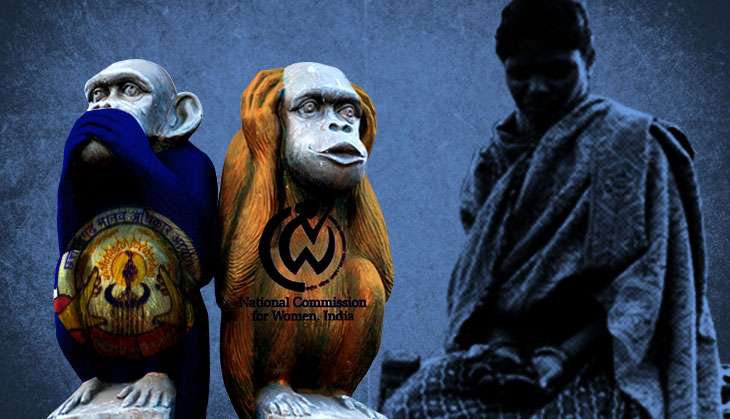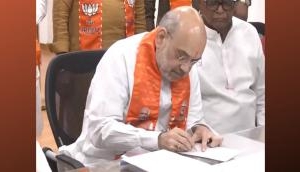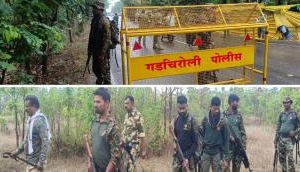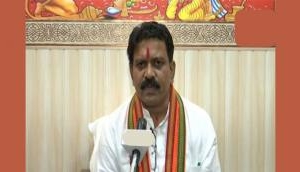Mass rape of Adivasi women in Bastar: Why are human rights body and women's panel mum?

The roles of Chhattisgarh Human Rights Commission and Women's Commission in the mass rape of Adivasi women in Bastar, have been under scrutiny for a while. The pressure has been upped in the wake of the notice sent to the state government by National Human Rights Commission (NHRC).
Social workers and human rights workers have accused the government of making political appointments to major positions in the commission. And consequently, these appointees take into consideration the convenience of the government when it comes to deciding whether to take note of an incident or just ignore it.
Takes no suo moto cognizance
After the rape of 16 Adivasi women from Kunna, Guler and Bellam Landra villages of district Bijapur in Bastar by police and security forces came to light, the NHRC issued a notice to state government, holding it indirectly responsible for it.
After this notice the state government is being trounced thoroughly. Generally the commission recommends action only when a victim makes a complaint with facts. The commission can also take cognition of the matter looking to the gravity of the dastardly act.
But in this case of Adivasi women, neither of the two commissions took note of the rape.
According to former Union Minister Arvind Netam, the rapes were committed between October 2015 and January 2016.
During this time tours by fact-finding committees were also being undertaken along with volunteers of the human rights and social workers commissions. Even the Central Commission of Tribes believed after meeting the victims that humiliating and inhuman excesses indeed were committed on Adivasi women.
But the human rights and women's commission of the state did not feel that these 'things' happening to the adivasi women were of importance.
Netam added that all those commissions which did not feel any connect with those exploited women and did not feel their pain, should be disbanded.
The state president of People's Union for Civil Liberties (PUCL), Lakhan Singh, said that in case of human rights and women commissions of Bastar there is an emergency, much like the emergency in the state. Therefore, as Singh says, it is useless to expect the commissions to work impartially.
Files of most cases closed
There were 124 cases of violation of human rights from Bijapur and Dantewara that came to the state human rights commissions from 1 January 2015 to January 2017 but most of them, except a few, have all been closed.
For example, investigations are on regarding the complaint of Dr Barbel Kolphur, the German human rights member made on the arrest of journalists Santosh Yadav and Somaru Nag of Bastar. But, the file of lawyer Isha Khandelwal about the complaint of the Kuknar SHO beating up village folk has been closed.
Investigation of the complaint made by Henry Tiphangne, member of the human rights executive, regarding the threat of burning Adivasi leader Soni Sori alive has been stopped.
No investigation even after the complaint of rape
The complaint of rape of women in Chinagelur and Pedagelur villages, under the Basaguda Police Station, was made by Prakash Thakur, president of Sarva Adivasi Samaj Bastar, to the state human rights commission.
After the complaint, the incident was registered under 1626/2015/BTR/PCA but the commission closed the file on 5 December 2012.
Why were investigations not considered necessary even after a proper complaint of rape? And why was the complainant not even informed of the same? No one quite knows yet.
The investigation on the complaint made by Henry Tiphangne regarding the dismissal of journalist Malini Subramaniam was also closed. Subramaniam said that the commission did not call her even once to ask her about her version of the story after the complaint was made.
Different explanations provided
"It is true that investigations of many matters have been closed but there are many other reasons for this. In general, natural justice holds that a person cannot be punished twice for the same fault. When the NHRC is investigating the matter, why should the state commission interfere?" asked Dilip Bhatt, the joint secretary of the State Human Rights Commission.
"The women commission has taken cognition in one matter of Bastar but in the cases of 40 other rapes, the commission did not take any cognition," said Harshita Pandey, president of the Women's Commission.
Edited by Jhinuk Sen
First published: 17 January 2017, 6:11 IST






![BJP's Kapil Mishra recreates Shankar Mahadevan’s ‘Breathless’ song to highlight Delhi pollution [WATCH] BJP's Kapil Mishra recreates Shankar Mahadevan’s ‘Breathless’ song to highlight Delhi pollution [WATCH]](http://images.catchnews.com/upload/2022/11/03/kapil-mishra_240884_300x172.png)

![Anupam Kher shares pictures of his toned body on 67th birthday [MUST SEE] Anupam Kher shares pictures of his toned body on 67th birthday [MUST SEE]](http://images.catchnews.com/upload/2022/03/07/Anupam_kher_231145_300x172.jpg)






